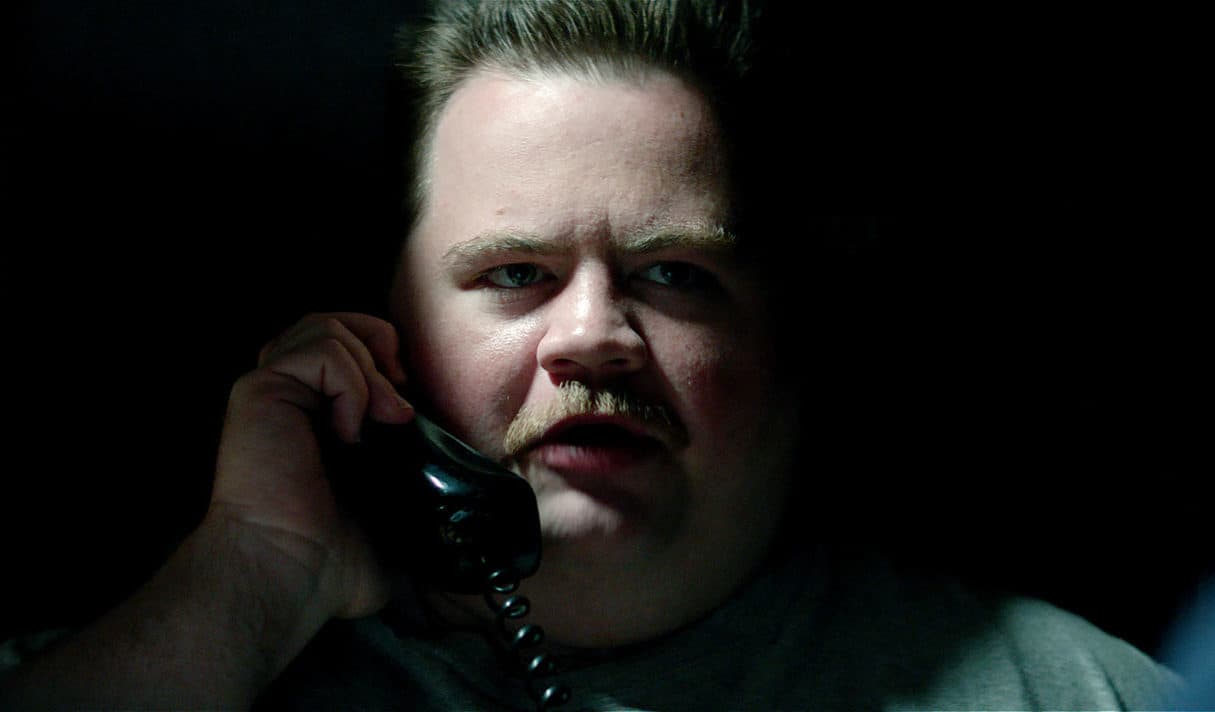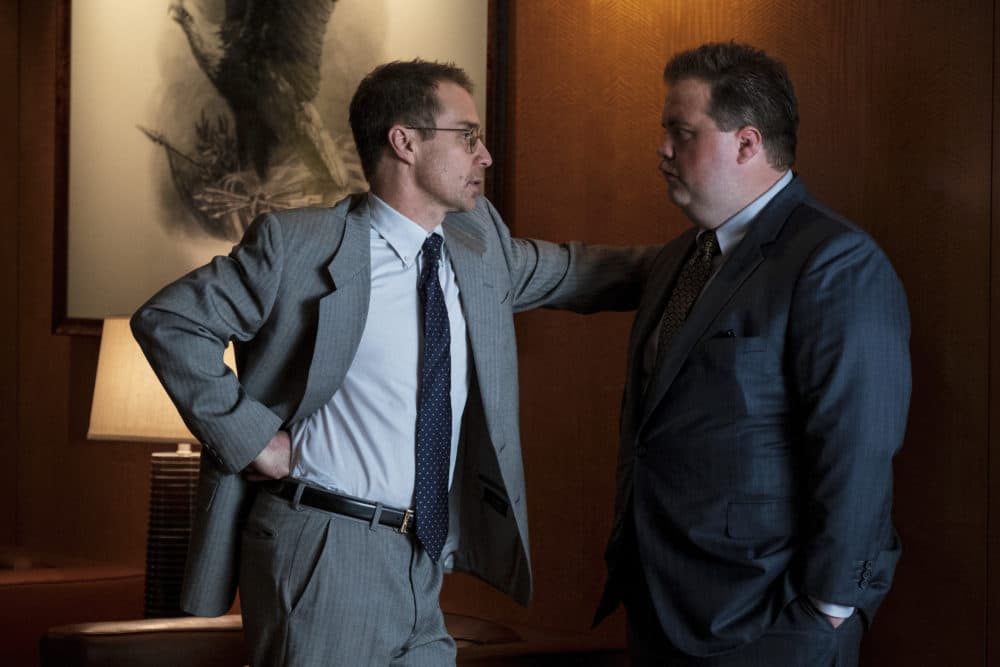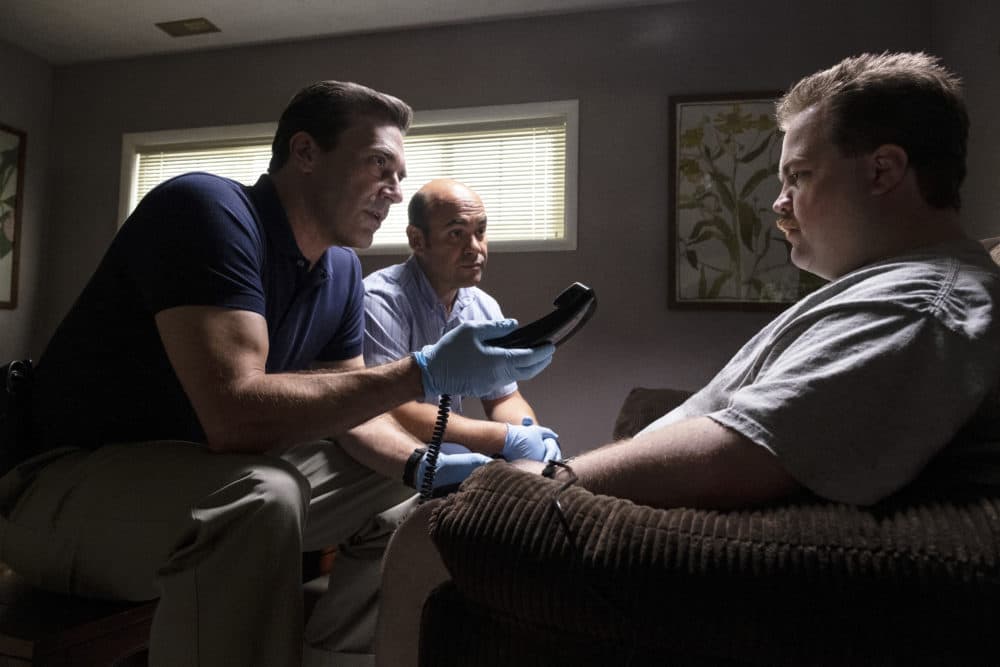Advertisement
Review
Weak Stereotypes Of Female Journalists Obscure The Virtues Of 'Richard Jewell'

For darn near 50 years behind the camera, Clint Eastwood has been telling us we’re on our own. If there’s anything the 38 theatrical features he’s directed have in common it’s their bone-deep suspicion of venerated institutions and an undisguised contempt for the guys behind desks who call all the shots. Like Dirty Harry or the Man With No Name, Eastwood heroes are loners and outcasts, rejected by the mainstream and pledging allegiance to their own flags. Clint’s bozo antics at the RNC notwithstanding, his work has always had a hardcore libertarian bent, with “Richard Jewell” being the latest and perhaps bluntest articulation yet of his go-it-alone philosophy. The movie is mid-tier Eastwood, a classically crafted, crowd-pleasing character study that suffers from one dumb decision threatening to derail the whole thing.
The third panel of a regular guy, real-life-heroics triptych that began with 2016’s terrific “Sully” and continued in last year’s dire “The 15:17 to Paris,” Eastwood’s latest tells the story of Richard Jewell, the security guard who spotted a backpack full of pipe bombs at Atlanta’s Centennial Olympic Park during a 1996 Olympic celebration, evacuating the immediate area before the device exploded, killing one and injuring over 100. Unfortunately, Jewell — an overweight mouth-breather and mama’s boy with a spotty employment record and a fetish for law-and-order authoritarianism — was nobody’s idea of a hero. The FBI’s suspicions soon leaked to the press and those of us who were around at the time (I was in college) can recall the media crucifixion that followed in the kangaroo court of public opinion, with Jewell’s eventual exoneration a mere footnote to 88 days of false accusations and ugly ridicule.
Jay Leno, who in a characteristically dazzling feat of comedic wordplay dubbed Jewell “The Una-doofus,” made sport of the suspect’s “scary resemblance to the guy who whacked Nancy Kerrigan," asking "What is it about the Olympic Games that brings out big fat stupid guys?" (A sparkling wit, that Leno.) To this end, Eastwood has cleverly cast in the title role Paul Walter Hauser, who you may remember played Kerrigan’s assailant Shawn Eckhardt in 2017’s “I, Tonya,” a significantly less adroit relitigating of a different 1990s media frenzy. Hauser is magnificent here as the over-solicitous Jewell, dumpy and embarrassing. The guy means well but you can easily understand why people quickly become uncomfortable around him, every scene a mini-symphony of social miscues and mumble-mouthed awkwardness.

Our audience surrogate is Watson Bryant, a down-on-his-luck real estate lawyer played with great gusto by Sam Rockwell. An old acquaintance of Jewell’s from a previous job, he’s one of those brash, Eastwood stand-ins who’s good at his job but terrible at playing politics. (Bryant’s office wall boasts a bumper sticker saying: “I Fear The Government More Than I Fear Terrorism.”) He’s here to rescue Richard from the FBI’s slippery, semi-legal investigative tactics and cruel mischaracterizations in the press. He’s also on hand to supply the comic relief whenever another one of Jewell’s weirdo personality quirks threatens to torpedo their defense, a task Rockwell brings off with an increasing affection for his client that ultimately becomes quite moving.
Richard doesn’t make it easy on his lawyer, constantly kowtowing and obsequiously sucking up to anyone with a badge. (“I’m law enforcement too,” the security guard keeps reminding the FBI agents while everybody rolls their eyes.) It’s a certain sort of personality type Eastwood is bristling against here — one I dare say has become more prevalent since 9/11 and our forever wars. This mindless, servile reverence before God and country is going to land Richard Jewell behind bars for a very long time and, since we already know how the story ends, the movie’s suspense comes from character — whether Watson can install in his client (and by proxy, the audience) enough skepticism in our sacred institutions to stand up and defend himself from their worst excesses.
Adapted by screenwriter Billy Ray from Marie Brenner’s excellent 1997 Vanity Fair article, “American Nightmare: The Ballad of Richard Jewell,” the film spent years in development as a buddy vehicle for Jonah Hill and Leonardo DiCaprio (both of whom retain producer credits on the final film) before Eastwood got involved. I can easily picture those actors in these roles, but it’s much more difficult to imagine any version of “Richard Jewell” that isn’t all wrapped up in the personal bugbears of its director. This is a Clint Eastwood movie through and through, from the effortlessly elegant compositions to the lovely, tinkling piano score and sometimes-skimpy production design. It’s full of this filmmaker’s admirably restless questioning of his heroes and also his regrettable tendency to caricature their adversaries.

Ay, there’s the rub. Olivia Wilde delivers one of the worst turns of this, or really any year as The Atlanta Journal-Constitution reporter Kathy Scruggs, who broke the first front-page story that Jewell was a suspect. Cussing her way into the newsroom with bad eye makeup and her boobs out, the micro-skirted Wilde performs a grotesquely overacted burlesque of every backward sexist stereotype about female reporters at a screeching, hyperinflated pitch completely at odds with the rest of the movie’s moody, muted tone. The film shows her trading sex for information with Jon Hamm’s slick, semi-incompetent FBI agent, an invented story point that crosses the line into character assassination when you realize the filmmakers have stupidly chosen to use the name of a real reporter who passed away in 2001.
I can see how it makes sense dramatically (and especially visually) to position the Hollywood-gorgeous, sexed-up Hamm and Wilde as the bullying antagonists to our homely heroes. The problem (in addition to the whole slander thing) is one of proportion and not unfamiliar to Eastwood pictures, as Wilde’s blowsy banshee reminded me most of those hillbilly welfare cheats that keep popping up and puncturing the spell of “Million Dollar Baby.” It’s also the worst kind of irony that a movie calling a newspaper on the carpet for making false accusations would then turn around and do exactly the same thing to one of the reporters involved. What a dopey, unforced error that's already kicked up enough controversy to obscure this otherwise thoughtful movie’s modest, but very real virtues.
